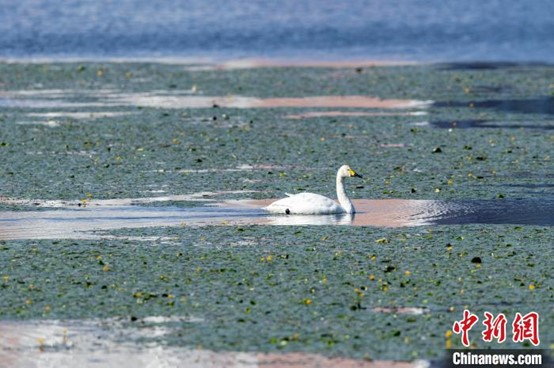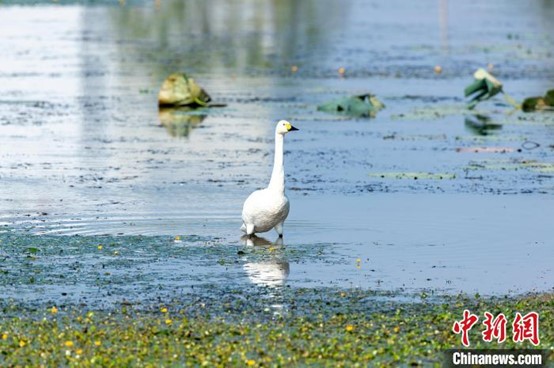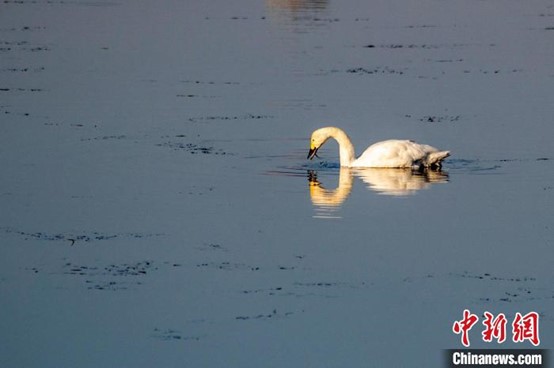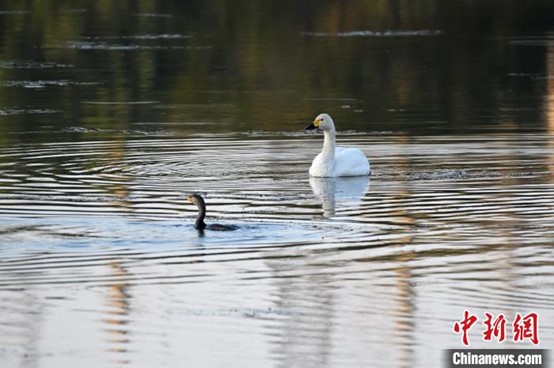Lead: A Tundra Swan was observed by HZAU bird enthusiasts in the southern campus Yezhi Lake, which turned out to be a wild animal under second class state protection.

The tundra swan roams on Yezhi Lake. (Photo/Li Xiang)

The tundra swan steps onto the shallows. (Photo/Li Xiang)

The tundra swan forages in the middle of the lake. (Photo/Liu Tao)

The tundra swan flaps its wings. (Photo/Zong Qi)

The tundra swan plays with a cormorant. (Photo/Zong Qi)
Bird-watchers at HZAU recently spotted a Tundra Swan near Yezhi Lake in the southern campus. The tundra swan stood out in size compared to the egrets, snipers, dabchicks and black-water chicks that winter at the same lake. Featuring white feathers and a long neck, black feet and webs, the swan was found foraging in the water and enjoying the sunshine on the shallows from now and then.
Zong Qi, a bird-watching enthusiast and a teacher at the State Key Laboratory of Agricultural Microbiology of HZAU, visited Yezhi Lake early in the day with his camera simply to have a look at the Tundra Swan. He said that the tundra swan might have been left “alone” during its migration. He also kindly reminded people coming to the see the “big goose” to keep a distance from the swan in case of its stress reaction.
Li Xiang, an associate professor of College of Animal Science and Technology and College of Veterinary Medicine, and the leader of Project of Preserving Overwintering Tundra Swans in Hubei Province, was also keeping a close eye on the tundra swan these days. According to his observation, the tundra swan is in good health and behaves normally.
According to Li, the tundra swan is a wild animal under second class state protection. As a migratory bird which is highly particular about the habitats, like quality water, open water, rich aquatic plants and shallows, it mainly lives in Northern Europe and the Siberian tundra and flies south from October every year to spend the winter.
When asked why the tundra swan was left alone and chose to stay at the Yezhi Lake, Li mentions many possibilities. “Because Wuhan is one of the winter habitats for Tundra Swans, boasting a pleasant ecologoly and abundant food, the bird can inhabit the Yezi Laka safely as long as no citizen harms it,” Li said and called on everyone to watch birds in a civilized way and jointly protect them.
Source: http://news.hzau.edu.cn/2022/1103/64993.shtml
Translated by: Yao Li
Supervised by: Jin Bei
